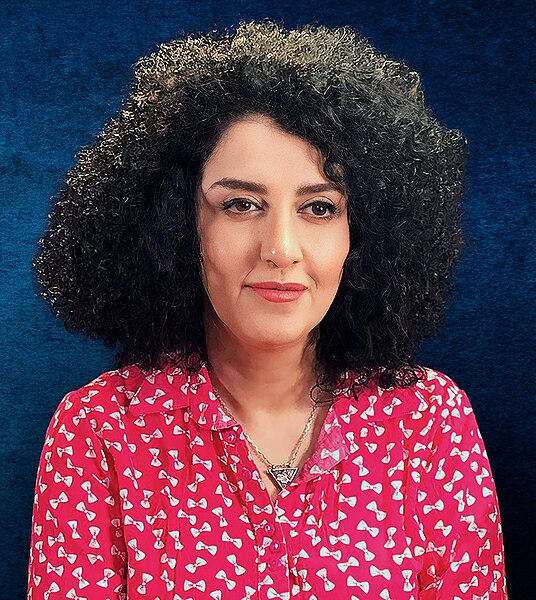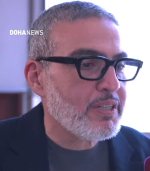
Narges Mohammadi, a prominent advocate for women's rights and human rights in Iran, has been announced as the recipient of the 2023 Nobel Peace Prize, despite her current incarceration.
Mohammadi, known for her unwavering commitment to her causes, has pledged to continue her activism within Iran.
In a statement released following the announcement, Mohammadi expressed her determination to persist in her fight for democracy, freedom, and equality. She believes that the Nobel Peace Prize will strengthen her resolve and accelerate her efforts.
Mohammadi's advocacy efforts have encompassed a wide range of issues, including women's rights, the abolition of the death penalty, and the improvement of prison conditions within Iran.
Presently, she is serving multiple sentences, totaling approximately 12 years' imprisonment, in Tehran's Evin prison. Her charges include spreading propaganda against the state.
The Norwegian Nobel Committee commended Mohammadi for her dedication to combatting the oppression of women in Iran and her commitment to advancing human rights and freedom for all.
Even while incarcerated, Mohammadi has remained active, drawing attention to nationwide protests by publishing letters that highlight the conditions within prisons and detention centers, as well as violence against detainees and prisoners.
Nazanin Zaghari-Ratcliffe, a British-Iranian dual national who shared a prison cell with Mohammadi in Evin, lauded her as an inspiration and a staunch advocate for women's rights, challenging the use of solitary confinement and executions within Iran's judicial system.
The award of the Nobel Peace Prize to Mohammadi is seen as a tribute to the Woman, Life, Freedom movement in Iran, which stirred the clerical establishment last year but faced suppression, resulting in many activists being imprisoned or killed. The movement was sparked by the death of Mahsa Amini, a young Kurdish woman who died in police custody after being arrested for not adhering to state-mandated hijab rules.
Mohammadi also serves as the deputy head of the Defenders of Human Rights Center, a non-governmental organization led by Shirin Ebadi, a Nobel Peace Prize laureate in 2003. The Norwegian Nobel Committee acknowledged that her courageous fight has come at a significant personal cost, including separation from her family, who were compelled to leave Iran.
The Nobel Peace Prize is expected to bolster Mohammadi's ongoing struggle for human rights and the broader movement she leads, known as Woman, Life, Freedom.
In response to the news, Mohammadi's husband, Taghi Rahmani, expressed his belief that the Nobel Prize would invigorate her fight for human rights. He also emphasized that the award symbolizes recognition of the entire Woman, Life, Freedom movement.
The United Nations High Commissioner for Human Rights recognized the Nobel Peace Prize as a testament to the courage and determination of Iranian women who face reprisals, intimidation, violence, and detention while advocating for their rights.
Iranian authorities have not yet commented on the award, but the semi-official Fars news agency referred to Mohammadi as receiving her prize from Westerners and accused her of acting against national security.
Despite her imprisonment, Narges Mohammadi continues to be a powerful voice for human rights and women's rights in Iran. The Nobel Peace Prize serves as a testament to her unwavering commitment to these vital causes. Photo by VOA, Wikimedia commons.









































